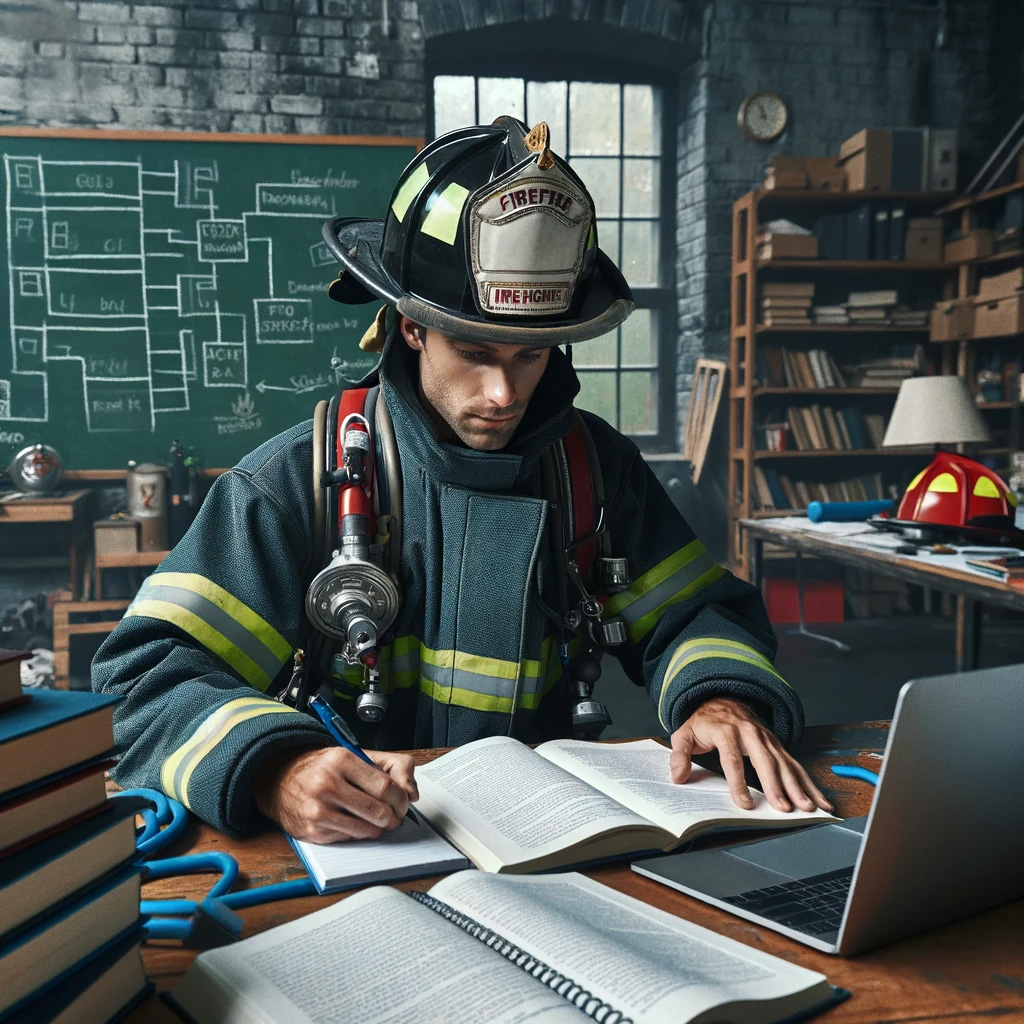Lifelong Learning is Important to Gen Z Recruiting

In an era defined by rapid technological advancements and evolving societal needs, the concept of lifelong learning has become increasingly important across all professions. The fire service, with its rich tradition of valor and community service, is no exception. For Generation Z—the latest generation to enter the workforce—this emphasis on continuous education and skill development could be a key factor in attracting them to a career in firefighting. This blog post explores how highlighting lifelong learning in the fire service can be an effective strategy for recruiting Gen Z, underscoring the opportunities for personal and professional growth within this noble profession.
Introduction
Generation Z, born between the mid-1990s and early 2010s, is entering the workforce with a unique set of values and expectations. They seek careers that not only provide financial stability but also offer opportunities for continuous learning, personal development, and meaningful impact on society. The fire service, with its commitment to ongoing education, advanced training, and community engagement, aligns well with these aspirations. By emphasizing lifelong learning, fire departments can attract Gen Z candidates who are eager to grow, innovate, and contribute to their communities.
The Value of Lifelong Learning in the Fire Service
Keeping Pace with Technological Advances
The fire service is continually evolving, with new technologies and techniques being developed to improve emergency response and safety. Drones, thermal imaging cameras, and advanced firefighting equipment are just a few examples of the technologies that have been integrated into firefighting operations. Lifelong learning ensures that firefighters stay up to date with these innovations, enabling them to respond more effectively to emergencies and better protect the communities they serve.
Enhancing Professional Competence
Continuous education is crucial for developing and maintaining the diverse skill set required in firefighting. Beyond the physical demands of the job, firefighters must possess a deep understanding of fire behavior, emergency medical procedures, hazardous materials management, and disaster response. Lifelong learning programs, including certifications, workshops, and degree courses, help firefighters advance their knowledge and expertise, leading to higher levels of professional competence and confidence in the field.
Fostering Leadership and Career Advancement
For Gen Z individuals aspiring to leadership roles within the fire service, lifelong learning is a key component of career advancement. Leadership training and management courses prepare firefighters for positions of increased responsibility, equipping them with the skills needed to lead teams, manage resources, and make strategic decisions during emergencies. Highlighting these opportunities for growth and advancement can attract ambitious Gen Z candidates who are looking for careers where they can rise through the ranks.
Strategies for Promoting Lifelong Learning
Integrating Technology into Training
To appeal to the tech-savvy Gen Z population, fire departments can leverage technology in their training programs. Virtual reality simulations, online learning platforms, and mobile training apps offer engaging and flexible ways for firefighters to develop their skills and knowledge. These technologies can simulate complex emergency scenarios, allowing firefighters to practice their response in a safe and controlled environment.
Offering Educational Partnerships and Scholarships
Fire departments can forge partnerships with educational institutions to provide firefighters with access to degree programs and specialized training. Scholarships and tuition reimbursement programs for courses related to fire science, emergency management, and public safety can make these opportunities more accessible to Gen Z firefighters, encouraging them to pursue further education while serving their communities.
Encouraging a Culture of Mentorship
Mentorship is a powerful tool for fostering lifelong learning within the fire service. Experienced firefighters can mentor newer recruits, sharing knowledge, offering guidance, and supporting their professional development. This culture of mentorship not only facilitates the transfer of valuable skills and experience but also strengthens team cohesion and morale.
Addressing the Challenges
While promoting lifelong learning in the fire service presents numerous benefits, it also poses certain challenges. Balancing the demands of the job with ongoing education can be difficult, especially for firefighters working long shifts and facing unpredictable emergency calls. Fire departments must provide flexible learning opportunities that accommodate these unique challenges, ensuring that firefighters can continue their education without compromising their operational duties.
Conclusion
For Generation Z, a career in the fire service offers more than just the opportunity to save lives and protect property; it offers a pathway to continuous personal and professional growth. By emphasizing lifelong learning, fire departments can attract and retain Gen Z recruits who are eager to develop their skills, embrace new technologies, and lead the next generation of firefighters. The commitment to ongoing education underscores the fire service’s dedication to excellence, innovation, and community service—values that resonate strongly with Gen Z. As the fire service continues to evolve, fostering a culture of lifelong learning will be essential for meeting the challenges of the future and ensuring the safety and well-being of communities worldwide.
